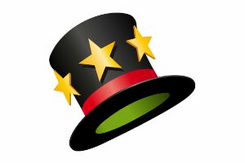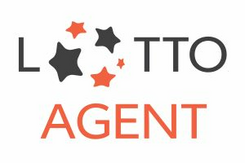Lottery Predictions: Is There Any Merit to Them?

This article discusses the validity of lottery predictions and which lottery predictors have any merit.
MATHEMATICAL LOTTERY PREDICTORS
Mathematical formulas are among the most common lottery prediction tools. For each game, probability theory can be used to find the total number of possible winning combinations based on how many numbers you can choose from and the different ways you can choose them. From here, math experts may be able to calculate the odds of certain winning numbers using additional complex formulas and by making some assumptions.
Probability theory was famously applied to the lottery by Renato Gianella, a Brazilian mathematician. He claimed that number combinations don’t all have the same probability of being drawn. Gianella colour-coded numbers and divided them into groups to form lottery templates. He named his system the Loto Rainbow method. Players who use his templates should be able to predict the best, the not so bad, and the worst combinations for a given lottery and improve their odds of winning.
AVOIDING LOW NUMBERS
Predicting winning combinations just by avoiding low numbers doesn’t sound like a mathematical theory, but lotto experts agree that there is both mathematical reasoning and merit to why it might actually be a good lottery strategy. Thankfully, the only calculation required here is simple addition.

Meanwhile, Gail Howard, a former stockbroker, developed another number-picking system to help players choose combinations that add up to a predicted winning range. Based on some serious number crunching, she predicted that in the New York Take 5 lottery game, in which players choose five numbers from 1 to 39, the winning numbers added up to between 75 and 125 about 70% of the time. Choosing low numbers would not reach the winning range—and according to Howard, this proved true for most other lottery games, too.
Howard calculated the winning ranges for 236 lottery games from around the world and published the ranges in her book, Lottery Winning Strategies & 70 Percent Win Formula. Since 1982, 108 people have won first-prize jackpots using her method, adding up to a documented $101,865,192 in winnings.
LOTTERY PREDICTOR APPS AND SOFTWARE
Since the 1980s, lottery prediction has evolved from barebones number-generation wheels to significantly more nuanced programming. Today’s best lottery predictor applications and software may even combine several prediction methods to give players more chances to win prizes. Some also generate predictions for several different lottery games.

The Pick3Sniper phone app is an example of an app that focuses on just one game. In this case, it narrows the odds on winning numbers for the Pick 3 lottery that’s popular in many states across the US. This app is designed to make it easier to pick just three of ten possible numbers. When users open the app, the application loads a panel of 10 prediction clusters. Each cluster has just six numbers from which users can pick three. In other words, the app makes it significantly easier to pick three numbers than just choosing entirely at random.
Meanwhile, Beat Lottery combines two types of lottery predictions to improve players’ odds of winning the Powerball and Mega Millions lotteries. One prediction is generated using the Beat Lottery system, which considers previous draws and identifies which numbers are statistically more likely to win in the next draw. Next, the system disqualifies half the possible numbers that it considers “less likely to win,” which means that players only select from half the original number of balls. Again, this makes it easier for players to choose their numbers. Beat Lottery also uses the “wisdom of crowds” by collecting predictions for the next jackpot’s winning number combination from every registered user on the site. The site then reveals the crowd’s final prediction 24 hours before the draw, so users can play those numbers.
DO LOTTERY PREDICTORS WORK?
At their core, lotteries are games of chance rather than games of skill. This makes them difficult if not impossible to predict. Most prediction systems work by using certain assumptions to eliminate numbers from play, which makes it easier for players to choose their numbers in general. Some applications even generate numbers at random to take any guesswork out of buying your ticket—but this is usually no different than letting the lottery ticket retailer choose your numbers for you.
However, it appears that sound mathematical theories that remove some of the numbers from play (such as avoiding low numbers) can increase your odds of winning to some degree. Moreover, if you consider the idea that it’s virtually impossible for a winning combination to be drawn more than once, apps such as Number Generator that generate unique combinations may also increase your statistical odds of winning. However, there is no way to truly know how much your chances will increase by using these lottery prediction methods—even the ones that choose number combinations that have never won before.
CONCLUSION
In general, using lottery predictor software or a mathematical tool won’t hurt your odds of winning, but there is little proof that it will increase your odds of taking home a prize. Before buying or using any lottery prediction tool, make sure to do your research and choose a reputable one. It’s best to rely on unbiased crowdsourced opinions (and of course our software reviews) for information rather than on testimonials posted on lottery predictors’ websites, since these can be easily faked. Good luck and play smart!






